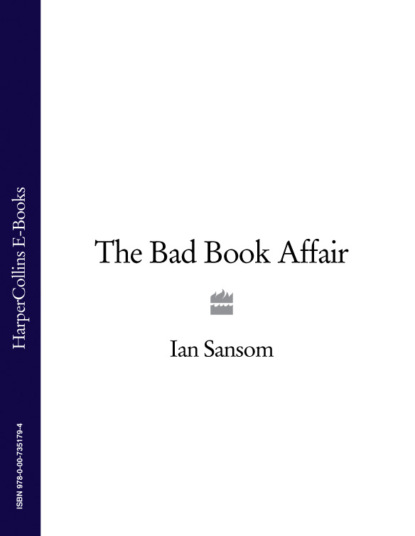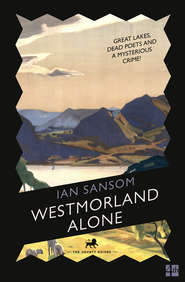По всем вопросам обращайтесь на: info@litportal.ru
(©) 2003-2024.
✖
The Bad Book Affair
Автор
Год написания книги
2018
Настройки чтения
Размер шрифта
Высота строк
Поля
‘You can’t stop me getting out the Bible.’
‘Well, yes, I can, actually, if it’s a reference book.’
‘It’s not a reference book!’
‘Yes it is. It’s—’
‘It’s the Word of God.’
‘Yes. But I’m afraid it’s our reference copy of the Word of God. I’m afraid you can’t take it with you right now. I can get you a copy on interlibrary loan for next week.’
‘That’s no good to me, is it? I want to read it now.’
‘Well, you can read it here, if you want to.’
‘In here? Are ye mad? I want to read it in the privacy of my own home. It’s for the purposes of private devotion.’
‘Well, I’m sorry, I can’t—’
‘Yer not a Christian, are ye?’
‘Erm…’
‘Ye’re not washed in the blood of the Lamb?’
‘Erm…’
‘You know you’re going to hell, unless you turn to Jesus.’
‘Right. Good. Thank you, Mr Kemp. Have a nice day!’
And of course Mrs Onions’ friend, Noreen.
‘Now, young man, will ye choose me a book?’
‘Yes, of course, Noreen. I…Just remind me, what sort of books do you like to…’
‘I’ve read them all now.’
‘OK. What, all the books in the library?’
‘Every last one of them.’
‘All the books?’
‘Aye.’
‘Everything?’
‘Aye. I’m eighty-four, you know.’
‘Yes. Well done.’
‘I waited fourteen years for a knee replacement.’
‘Uh-huh.’
‘It was crumbling away.’
‘Right.’
‘I’ve read all these books, you know.’
‘Yes, you said.’
‘All the Mill and Boons.’
‘There are other books you could try, Noreen…’
‘Ach, no. I don’t have time for them. I had a friend, she died while she was reading one of them other books.’
‘I’m sorry to hear that.’
‘You’re all right—it wasnae a library book. She bought her own books.’
‘Right.’
‘Her son looked after her rightly. Not like mine. I’ve not a phone call from them from week to week. I wonder, would ye be able to do me a few bits of shopping in?’
Misplaced, that was the word for it. That’s what he was, Israel. That was his problem. He was misplaced. He rightly belonged in delightful places, Israel, filled with delightful people: Ravello, for example, in the 1920s, or somewhere around Lake Como, perhaps, with people who enjoyed painting watercolours of old buildings, and who drank prosecco, and grappa, from small tumblers, while enjoying intellectually stimulating and ever-so-slightly-erotically-charged conversations. His natural habitat was formal terraced gardens, swagged with wisteria, with ancient fig trees and vine-covered trellises, and shaded patios leading into light-filled villas with shutters and faded parquet flooring. Even back home in leafy north London, with access to good coffee and a reliable broadband service, that’d do. Instead, he’d somehow ended up as the mobile librarian in a town where Pat’s Manicure and Footcare (‘Manicure, Polish, Acrylics, Corns, Callouses, And Verucas’) in the town square was a popular meeting place for young and old alike, and where local fishmonger Tommy Turner’s recent winning of the local Chamber of Commerce’s Small-To-Medium Business Personality of the Year Award was a cause for celebration (‘Small-To-Medium Personality of the Year Awarded to Local Man’, ran the headline in the Impartial Recorder).
Israel had always liked to think of himself as a warm, outgoing, friendly sort of an individual who could rub along with anyone. Until he came to Tumdrum, where warm, outgoing, friendly sorts of individuals who thought they could rub along with anyone but who weren’t from round here were generally considered to be pushy, uppity good-for-nothings. He was a square peg in a round hole, a fish out of water, out of step, out of time, and out of place. He was a misfit, though admittedly a slightly lighter, bearded misfit, after his two weeks in bed, contemplating the meaning of life, the universe and everything, and weeping over Gloria, and the plight of the Hebrew people, and the thought of his forthcoming thirtieth birthday, which he would be celebrating, unbelievably, in Tumdrum. Alone.
He grimaced at his reflection in the windscreen. He’d lost quite a bit of weight, what with pretty much surviving on wine, cider and spoonfuls of peanut butter for the past few weeks, with only the occasional variation.
Not that he was on a diet. Not as such. Since he’d split up with Gloria he’d been losing weight at a rate of several ounces a day—the equivalent of about a bag of lean beef-mince a week—and had gone down from a size 36 waist to a 32 in just a couple of months, achieving a weight and a size that he’d last seen when he was a schoolboy. He was using safety pins on his trousers, and had had to trim some of the vast expanses of his shirt-tails and use them for rags. His duffel coat flapped around him like a dirty brown toggle-tie blanket left out on the line to dry.
It wasn’t that he’d decided not to eat. He just found that he couldn’t eat; he wasn’t able to eat. It wasn’t a diet; it was more like an unofficial hunger strike: his body was refusing him. Tayto cheese-and-onion crisps—certainly the best and possibly the only good reason for living in Northern Ireland—tasted like ashes in his mouth. And champ—often he couldn’t manage more than a mouthful of old Mr Devine’s creamy champ at dinner, all that potato and spring onion and good salted butter going to waste, scraped away for the pigs. Potato bread likewise. Sodas. Even the tray bakes—he’d not been able to finish a tray bake for weeks. At lunchtime he’d go to the Trusty Crusty and buy himself a couple of caramel squares, and a church window, a fifteen, maybe a Florentine—just the normal day’s Tumdrum home-baked snacks—but it was no go. He’d be about to tuck in, and suddenly his body seemed to just give up, seemed to say, ‘What’s the point?’ Since splitting up with Gloria he’d changed from a coffee-guzzling, comfort-eating, vaguely troubled fat person into a graze ‘n’ nibbling, wine-bibbing, deeply troubled thin person. He was hardly eating anything, but felt bloated the whole time. His hunger, which had always been his friend, had seemingly deserted him. His headaches were worse than ever, and at night he was having these dreams, vivid dreams all the time—bobbing around on a life raft, scanning the horizon, no land in sight; tripping down mountainsides; wandering lost through vast deserts…abandonment.
He was not only a misfit. He was an eating-disordered misfit.
As he was musing on his profound, increasing, ageing misfittedness, a young woman had come up the steps into the library. Israel glanced up. She looked to be in her mid-teens, although it was difficult to tell, because she had long, blonde hair hanging down over her face, big mascaraed eyelashes, and a black beanie hat pulled down tight over her head. Israel gave her a second glance: if she was indeed in her mid-teens, she should probably have been at school. They had this problem all the time, children bunking off school and skulking around the library. They called it ‘mitching off’, the children. ‘Aye, I’m mitching off, what are ye going to do about it?’ they would retort to Israel’s polite suggestion that they return to school. He always felt vaguely responsible for truants, in the same way he felt vaguely responsible for the future of the rainforests, and global warming, and the war on terror. He felt bad, ineffectively bad, ruminatively bad. He felt bad, but could do absolutely nothing about it. He wasn’t a politician, or a policeman, or a teacher, he was just a librarian, and alas librarians aren’t able to save the world, or even to act in loco parentis. He was powerless. In the end Israel’s only real responsibility was towards the books, rather than the readers. There wasn’t really much he could do for readers. The books he could cope with. The great thing about books is that they don’t talk back—unlike the teenagers, and the Mrs Hammonds and Hughie Boyds and Mrs Onions of this world. Israel absolutely dreaded teenagers coming on board the mobile library, more even than he dreaded reading to the children of Tumdrum Primary, or even dealing with Mrs Onions. Children are bad enough—children are rude, selfish, greedy and unthinking individuals who are unable to distinguish between their own selfish wants and needs and the wants and needs of others. And adults are children with money, alcohol and power. But that in-between stage, the teenage, is even worse, the interim between childhood and adulthood. In the interim between raging, selfish, impotent childhood and raging, impotent, insignificant adulthood you have adolescence, which is childhood with hormones. He hated Tumdrum’s teens.
The girl was wearing a short, black skirt, and thick black tights, and heavy black boots, and a long black jumper, and she carried over her shoulder a black bag covered all over in black plastic spikes. It was a bag that looked as though it might have been useful as a cat-scratcher, or as a kind of orthopaedic aid for people with lower back problems caused by bad posture from sitting staring at a computer all day playing multiuser-dimension games.
She looked like trouble. She looked like a Goth. He hated Goths.
‘I don’t like the Goths,’ he’d mentioned to Ted one day.











